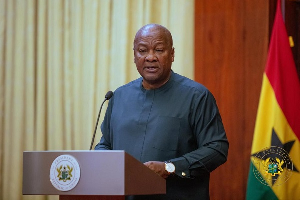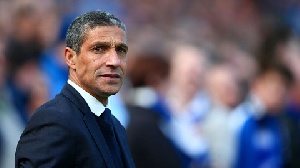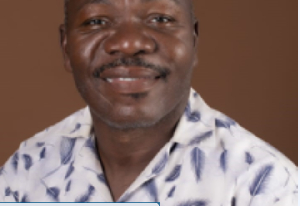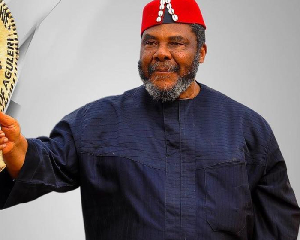Joseph Owusu
At 52 years old, Ghana remains a struggling, incipient sub-Saharan African first born nation state. The country’s performance to date since 1957 is arguably mixed –some successes and failures. However without question, you read more disappointments than successes in our results. Given the fact that we started off with a huge promise and potential, one can only weep at how low we have descended.
At independence, we had an infrastructure that was the envy of developing countries. Road network was relatively good and we had a solid bank account for a developing country, to the tune of over 400 million pounds sterling. Even though the Ghana’s illiteracy rate was high, the people were relatively well fed and access to health care was better than we have today. Our cities and towns were better planned and law and order was more elaborate and efficient than today.
But Ghana’s founding father became a poor manager of the nation’s resources. Within a decade after independence, our reserves had evaporated and we had already incurred a huge debt, thanks to Nkrumah’s quixotic quest to establish the United States of Africa. Decades following the mid 60’s, Ghana was plunged into political chaos following successive coup d’états in 1972, 1978, 1979 and 1981. Ghana’s national debt ballooned while productivity took a steep decline. Given this political and socio-economic malaise, every single indicator of the quality of life index took a nose dive. Today, unemployment hovers around 50% and majority of the population have limited access to quality medical care. Preventable diseases such as cholera, dehydration and malaria remain major killers. No wonder current estimates for life expectancy in Ghana has hovered around 59 (Source: Human Development Index 2007) in the past decade, in an era where that number is inching towards 80 years in Japan, United States and Western Europe.
Political independence from the United Kingdom was supposed to free us from the shackles of poverty and economic dependency, but it has brought us more misery and economic dependency. Our economy is heavily financed by loans and grants; in many ways we have failed to live up to the high expectation bestowed on us following independence.
On the plus side, we have many reasons to celebrate March 6th and be grateful to the leaders that led that effort. At independence, Ghana did not have a single university –the University of Ghana, Legon was a university college, the equivalent of a community college in the United States. The deliberate policy of the colonialist was to deny us college education. Formal education, particularly, university education is always a threat to any form of illegal domination. To his credit, Kwame Nkrumah was aggressive in accelerating access to education for the Ghanaian masses. In a short time, he built three universities, including the University of Ghana, which was upgraded to university status. Nkrumah made education free and compulsory at the elementary level.
Kwame Nkrumah promoted African and national pride which helped the nation heal from psychological damage from centuries of seeing ourselves as second class citizens in our own land. Ghanaians assumed positions of authority in large numbers and enjoyed higher salaries and greater benefits. That sense of pride and sense of driving our own destiny that had eluded us for decades and centuries was indeed refreshing and invigorating.
Toddlers often insist on doing things even when they have no clue. In their haste and zeal, they learn to do things in the crude and the most expensive way, often committing costly mistakes or even hurting themselves in the process. But in the end, they become better and devise their own means of doing things very effectively. We should pad ourselves on the back in fighting for and successfully achieving independence. As a young independent nation, we have waffled and made costly mistakes out of ignorance and ineptness. The result has been punishing for our economy, social structure and political system. Ghanaians have suffered severe economic hardships for decades and have seen our quality of life plunge decades after independence. Not only are our children malnourished, but our schools are of low quality. According to a 2007 report by The International Mathematics and Science Study (TIMSS), Ghana scored higher than only Morocco out of 60 countries at the 8th Grade Level in Science. Despite the not-so-inspiring record on human development index, I believe we’re better off for making the effort to run our own government, economy, education and healthcare system, etc.
For even if toddlers are intrepid enough to hasten their learning process and become independent quickly, our leaders were right in demanding self-government. Despite the hefty price we’ve paid for our rookie blunders that have weakened our economy and made the country less competitive globally, we should feel no remorse for attaining self-government -- when the colonialist cynically told us we not ready. Some apologists for colonial rule make mockery of March 6th by pointing to the misery index that we have suffered in our inchoate exploration. But such cheerleaders of colonialism forget that we have made some gains: we have a new sense of pride as Sub-Saharan Africa’s first nation state free of foreign domination. We have expanded educational opportunities to our citizens to stimulate a sense of creativity, private ownership and wealth creation. We can now proudly proclaim the beautiful name Ghana, not the British Gold Coast. Our progress has been slow, but we have made the effort and in the end the toddler will become an adult who is fully independent.
The trouble is that at 52, we are a middle age still behaving like a toddler. National leaders often have no sense of patriotism or sympathy or loyalty to their subjects whom they serve. Rather than having a sense of urgency towards accelerated development to crawl us out of our 19th Century development level, their first instinct is to plunder our meager resources at will, like a starving toddler would ravenously consume at will any food at his reach, notwithstanding whether it is good or bad, or whether he has ownership of the food or not. Our culture has retrogressed to a point where corruption is at an intolerable level that cannot sustain any meaningful development. Africa loses approximately $148 Billion annually, according UN and World Bank estimates. Our overall moral decadence portends doom for our future if we do not reverse course from this perilous path.
On this our 52nd anniversary of the birth sub-Sahara’s first nation state, we should ponder over the miseries of the last 52 years, the abject poverty of our people, curable diseases that afflict and kill our people, high illiteracy rate and say it is time for a change. Toddlers we are no more. We ought to assume a new national character: the sane, sound, middle age adult who has acquired wisdom from years of suffering and difficulties, and who has put her dignity over her instant gratification, who has placed the well-being of her posterity above her own.
Opinions of Monday, 13 April 2009
Columnist: Owusu, Joseph


















